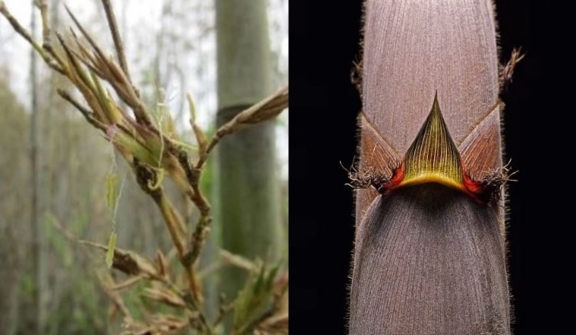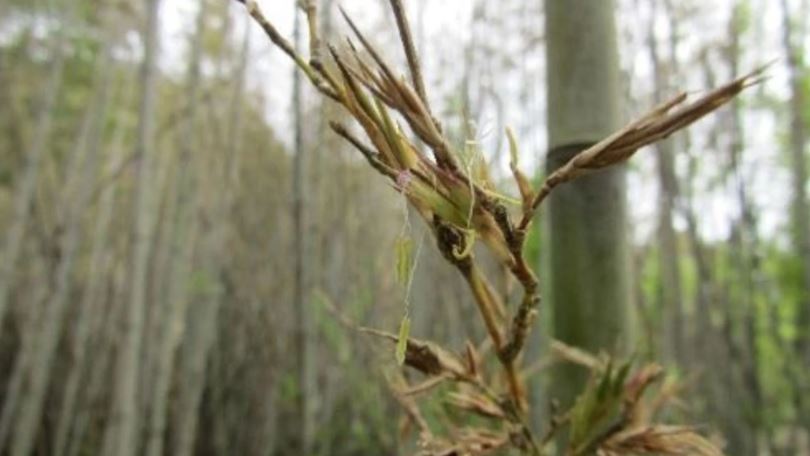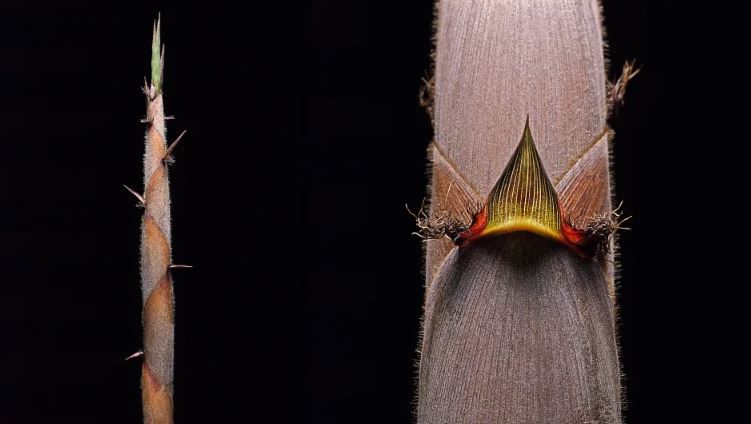
Known as Phyllostachys nigra var. henonis, or henon bamboo, this species typically blooms only once every 120 years before reaching the end of its life cycle.
The current generation of this bamboo species is projected to flower in 2028. However, scientists from Hiroshima University in Japan observed that a few local specimens had initiated their flowering process earlier than expected. So, this is a good opportunity to study this enigmatic species.

According to a study published on June 12 in the journal PLOS One, scientists made several significant discoveries.
First, they found that many of the flowering specimens did not produce any seeds. Additionally, they observed a lack of new culms emerging from the root systems of those that had undergone flowering, indicating limited asexual reproduction.
These findings raise concerns that dense bamboo fields may be difficult to regenerate and could eventually disappear, being replaced by meadows.

Henon bamboo was brought to Japan from China during the ninth century, yet there is a scarcity of scientific records documenting its regeneration process.
Its 120-year flowering intervals were determined based on ninth-century archival documents, and previous colonies died out right after flowering in 1908, only to re-establish themselves throughout Japan, as the researchers noted.
According to Live Science, Toshihiro Yamada, a conservation biologist and forest ecologist at Hiroshima University, stated, "Scientists 120 years ago did not describe the flowering of this species very well."
He added, "Therefore, we do not know much about the flowering ecology and regeneration process of this bamboo species."
The researchers conducted an examination of a group of early-flowering specimens discovered in Hiroshima in 2020. This group comprised 334 "culms," which are the woody, segmented stems in bamboo plants. They also discovered that a significant 80% of these culms that had undergone flowering failed to produce any seeds.
Yamada, one of the researchers, suggests the possibility that the bamboo regenerates underground, eventually giving rise to new individual culms. Once these culms have become established, the bamboo may then proliferate rapidly as a compensatory mechanism for its inefficient reproduction.
By the end of 2022, no bamboo culms had survived. "The question still remains about how the dead culms were replaced by a new generation," said Yamada, "Apparently, sexual regeneration does not work, since this species failed to make seeds."
However, this regeneration process might be time-consuming, potentially resulting in a substantial loss of biomass in the interim.
The scientists assert that this could result in not only economic losses to local industries but also lead to environmental problems."




